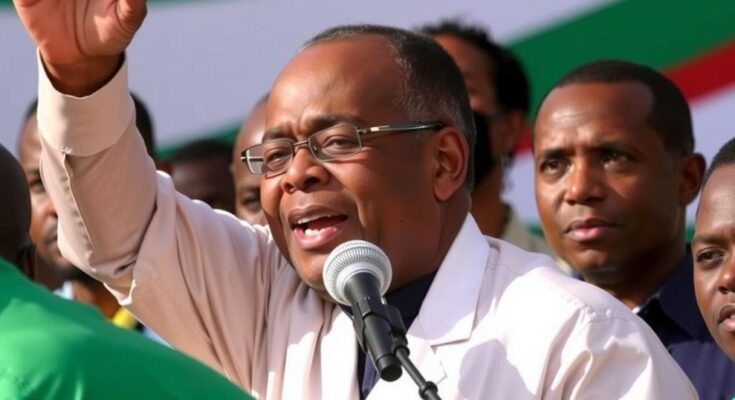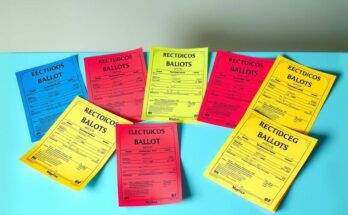Chad’s ruling Patriotic Salvation Movement party won 124 of 188 National Assembly seats in a parliamentary election boycotted by many opposition groups. The elections, hailed as part of a transition to democracy following Mahamat Deby’s military takeover, experienced a low participation rate and were criticized by opposition parties as illegitimate. This occurred amid ongoing security threats and significant political challenges.
The ruling Patriotic Salvation Movement party in Chad has secured a significant majority in the recent parliamentary elections, obtaining 124 out of 188 seats in the National Assembly, as announced by the electoral commission’s head, Ahmed Bartchiret. The elections, held on December 29, were largely boycotted by opposition parties and reported a low participation rate of 51.56%. This election, promoted by the government as a step toward democratic transition, follows President Mahamat Idriss Deby’s military takeover in 2021 after the death of his father, Idriss Deby Itno, who ruled for thirty years. The ruling party’s narrative emphasized decentralization and power distribution to lower government levels, although opposition figures condemned the election as a “charade” and questioned its legitimacy, citing concerns over previous electoral credibility. Moreover, the vote came amid significant security challenges stemming from regional instability and a shifting military alliance away from France. Following the elections, an attempted attack on the presidency was quelled by security forces, emphasizing the nation’s ongoing turmoil and struggles for stability.
The controversial parliamentary election in Chad marks a pivotal moment in the nation’s political landscape, occurring more than a decade since the last vote. This process is seen as part of a broader transition to democracy initiated by Mahamat Idriss Deby, who assumed power in 2021 following the death of his father, long-time President Idriss Deby. The Patriotic Salvation Movement’s substantial win amidst notable opposition boycotts raises questions regarding the election’s fairness and the Chadian populace’s confidence in the electoral process. Additionally, the current geopolitical climate, including shifting alliances and ongoing security threats from groups such as Boko Haram, adds layers of complexity to Chad’s governance and national stability.
In conclusion, the parliamentary election results in Chad signify a continuation of Mahamat Idriss Deby’s political dominance while simultaneously highlighting profound challenges surrounding democratic legitimacy. The significant boycott by opposition parties and the low voter turnout raise critical questions about public faith in the electoral process and the future of governance in Chad. As the country navigates through pivotal security concerns and regional shifts in alliances, the political trajectory remains uncertain and fraught with potential unrest.
Original Source: www.aljazeera.com




